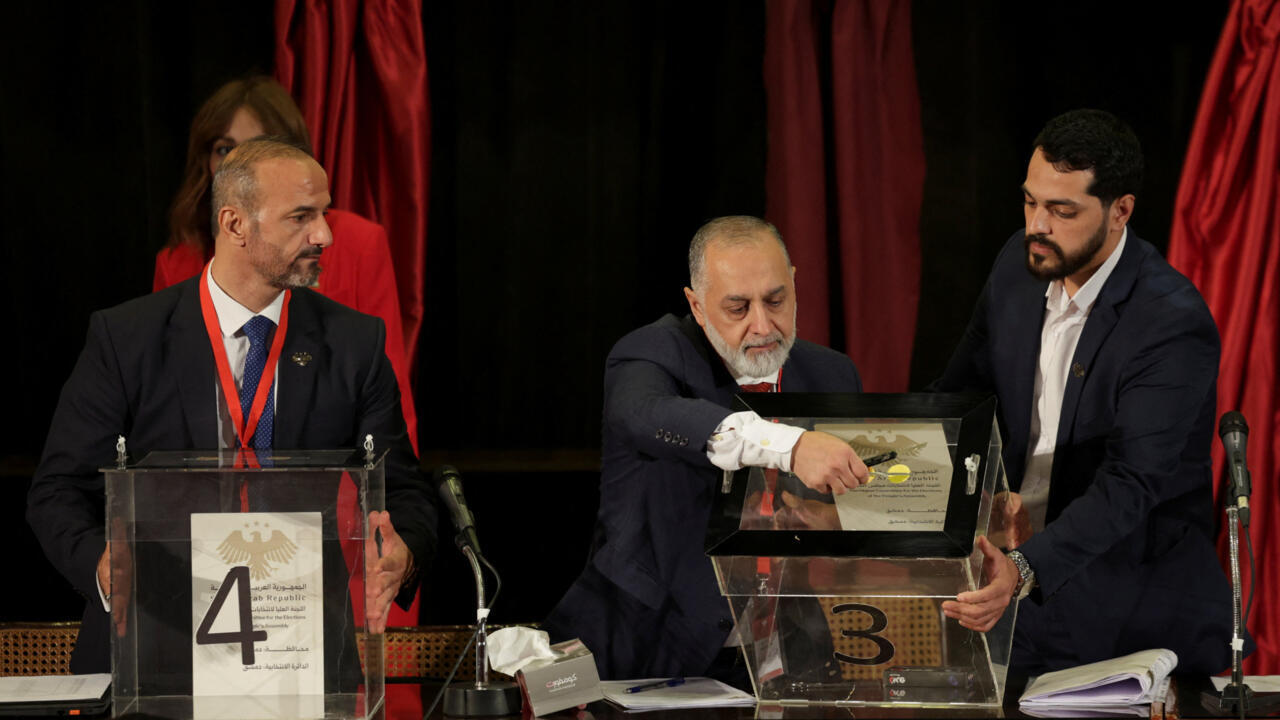PRESS REVIEW – Friday, September 19: International media react to Jimmy Kimmel’s cancellation, calling it a “bad time for comedians,” and speculate on what the Trump administration might target next. According to The Washington Post, billion-dollar mergers are fueling the wave of TV host suspensions. Meanwhile, Russia has revived its “Soviet Eurovision” – a retro move seen as part of broader Cold War nostalgia. Finally, Vanity Fair profiles Pakistani journalist Taha Siddiqui and his Paris-based venue, the “Dissidents Club”.
International media are reacting strongly to the shocking cancellation of Jimmy Kimmel’s show. In an opinion piece, British daily The Guardian asks "who is the next to be silenced" after Jimmy Kimmel and Stephen Colbert. Colbert’s show was also suspended earlier this year, after CBS paid Trump a large settlement to end the president’s defamation lawsuit. The article underscores that state censorship is illegal under the First Amendment – yet all signs point to a press that is no longer free. It is becoming dangerous to tell the truth about the Trump regime, adds the opinion piece. Spanish paper El Mundo calls it “bad times for comedians” and sees the move as an attack on free speech. Its editorial argues that since Donald Trump returned to power, he has relentlessly targeted media critical of him and his MAGA movement. The opinion piece says he still hasn't gotten over the fact that he lost the elections, pointing also to his failed attempt to orchestrate a coup at the Capitol. It’s a cover story for the German paper Der Spiegel. The paper writes that Donald Trump’s next step is going after TV stations and revoking their licences, because the president feels that he has been treated unfairly. “It’s no secret that Donald Trump can’t handle critical reporting” and “being publicly mocked”, writes the paper.
US media is also sounding the alarm. A column in The Washington Post says that "Kimmel’s suspension confirms what many suspected after Colbert’s cancellation". That media companies must punish Trump critics if they want their billion-dollar mergers approved. The article reminds us that when Colbert’s show was cancelled in July, Paramount was trying to get its merger with Skydance approved. The Washington Post then says that “the decision to target Kimmel has very little to do with the public interest and quite a bit to do with the private interests of the parties concerned”. Nexstar – the largest TV station in the United States – is seeking approval to acquire the media company Tegna. That's a 6.2-billion-dollar deal. An opinion in The Wall Street Journal says that “Now the right muzzles with free speech”. It’s written by Ro Khanna – a US representative from the Democratic party – who says that a shared commitment to free speech coming from both camps is foundational, despite the different lives, faiths and world views.
Moving to Russia, where the country has decided to revive its “Soviet Eurovision”, writes Radio Free Europe, in a "retro move" filled with "Cold War nostalgia". Since the full-scale invasion of Ukraine, Russia has been banned from participating in the international music contest, but the country is making sure they have a place to showcase its talent. It’s called “Intervision” and it’s a Soviet-era song contest with 22 countries expected to participate. Critics, however, see it as an attempt to "resurrect a geopolitical tool,” writes the paper, for those who want the return of Russia’s Cold War influence. Russian independent media Meduza writes that an Australian will be representing the United States at Intervision. Vassy is described by Russia as a “global dance music star”. What’s interesting is that shortly after the announcement that she will participate, references to her LGBTQ rights campaigns were removed from her Wikipedia page.
Finally, Vanity Fair tells the story of a bar for dissidents in Paris. It's called the "Dissidents Club", in the heart of France's capital, and it was founded by a Pakistani journalist, Taha Siddiqui, who feared that he could be killed by his country's military. He decided to come to Paris and open his bar for “drinking, dancing and discourse”, writes the magazine. He started his journalistic career in 2006, and later worked for international media, including for FRANCE 24 and The New York Times, winning prestigious journalism prizes. He reported on Pakistan’s military, and he says that they really didn't appreciate it. In 2018, in Islamabad, a group of men beat him and tried to kidnap him. He managed to escape and soon he fled to France with his family. As a barman, the dangers have changed – a drunk client here and there – which way is easier to manage, says Siddiqui.
You can catch our press review every morning on France 24 at 7:20am and 9:20am (Paris time), from Monday to Friday











 English (US) ·
English (US) ·